If You Grew Up Like This, You Had the Best Childhood
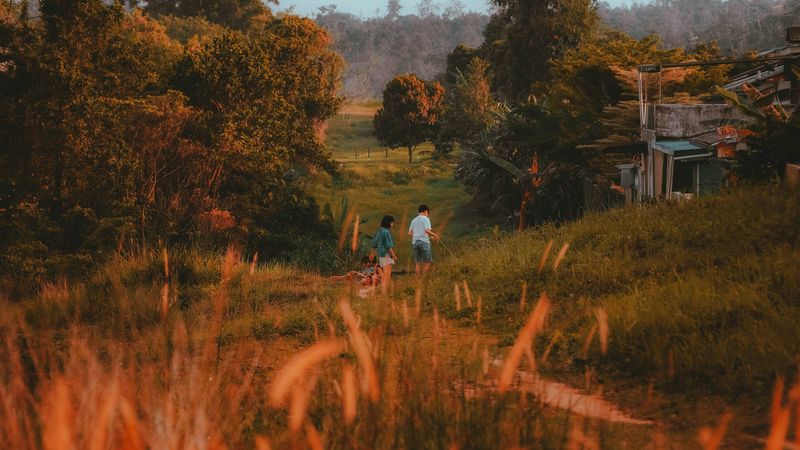
Remember the days when your biggest worry was whether you could stay outside until the streetlights came on? Those simple moments shaped who we are today. Growing up with certain experiences created memories that still bring smiles to our faces years later. If these things were part of your childhood, you were truly lucky to have such special years.
1. Playing Outside Until Dark
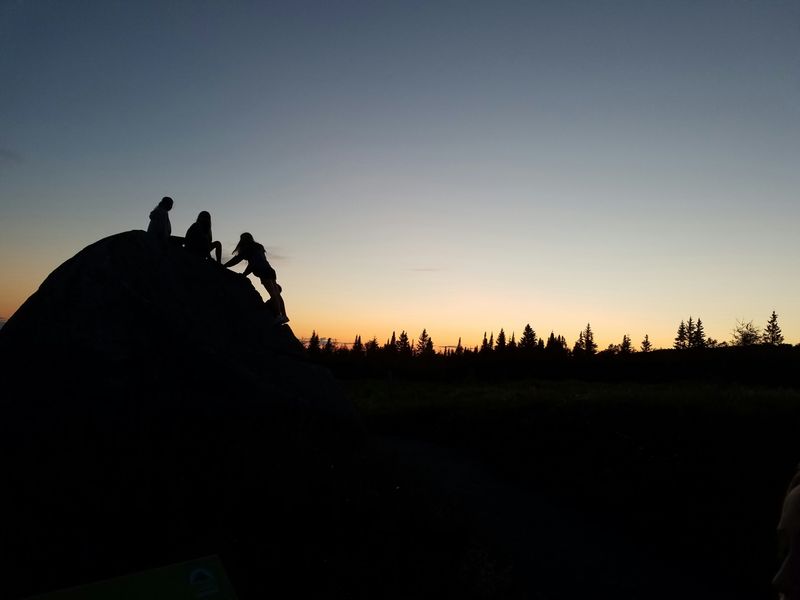
Freedom felt like racing your bike down the street with friends, knowing you had until the streetlights flickered on. Parents trusted neighborhoods enough to let kids roam and explore without constant supervision. You learned independence, made decisions, and solved problems on your own.
Those hours outside taught social skills that no classroom could match. Arguments were settled, teams were formed, and friendships deepened through shared adventures. Physical activity came naturally when fun was the only goal.
Coming home sweaty and exhausted meant you had lived fully that day.
2. Family Dinners Around the Table
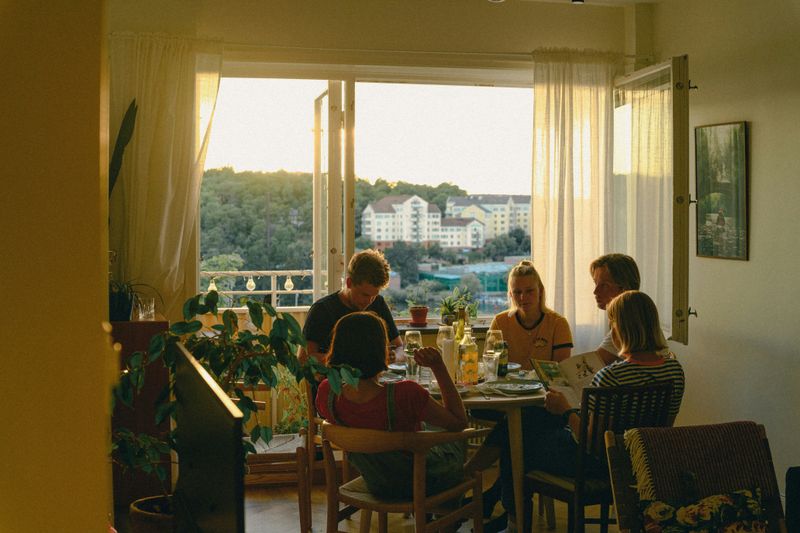
Every evening brought everyone together for more than just food. Conversations flowed as easily as the passing of dishes, creating a space where everyone felt heard. Stories from the day were shared, laughter erupted over silly jokes, and connections strengthened.
This daily ritual taught you the value of presence and attention. Phones didn’t interrupt because they barely existed or stayed in another room. You learned table manners, patience, and how to engage in meaningful dialogue.
These dinners became the foundation of family bonds that lasted a lifetime.
3. Building Forts and Secret Hideouts

Imagination transformed ordinary blankets and couch cushions into magical kingdoms. You spent hours constructing the perfect hideaway, negotiating architecture with siblings or friends. Every fort had its own rules, secret passwords, and special purposes.
These creative projects taught problem-solving and spatial reasoning without feeling like work. Collaboration happened naturally as you figured out which chair supported the roof best. The sense of accomplishment when your structure stood tall was incredible.
Inside those walls, you felt safe, powerful, and endlessly creative.
4. Saturday Morning Cartoons

Waking up early on weekends felt exciting instead of exhausting. You rushed to claim your spot on the couch with a bowl of sugary cereal balanced carefully. The lineup of shows created a ritual that marked the beginning of two glorious days off.
Characters became friends you visited weekly, and their adventures sparked your own imaginative play later. Commercial breaks meant quick bathroom runs or cereal refills before the show returned. No streaming meant you watched what aired, creating shared experiences with kids everywhere.
Those mornings taught patience and appreciation for simple pleasures.
5. Riding Bikes Through the Neighborhood

Your bike represented freedom on two wheels. Neighborhoods became vast territories to explore, with every street offering new possibilities. Wind in your face and the click of baseball cards in the spokes created the soundtrack of summer.
You learned navigation, independence, and responsibility for your prized possession. Scraped knees from wipeouts taught resilience and caution for next time. Racing friends down hills provided thrills that video games couldn’t match.
That bike took you everywhere your imagination wanted to go without asking adults for rides.
6. Climbing Trees and Exploring Nature
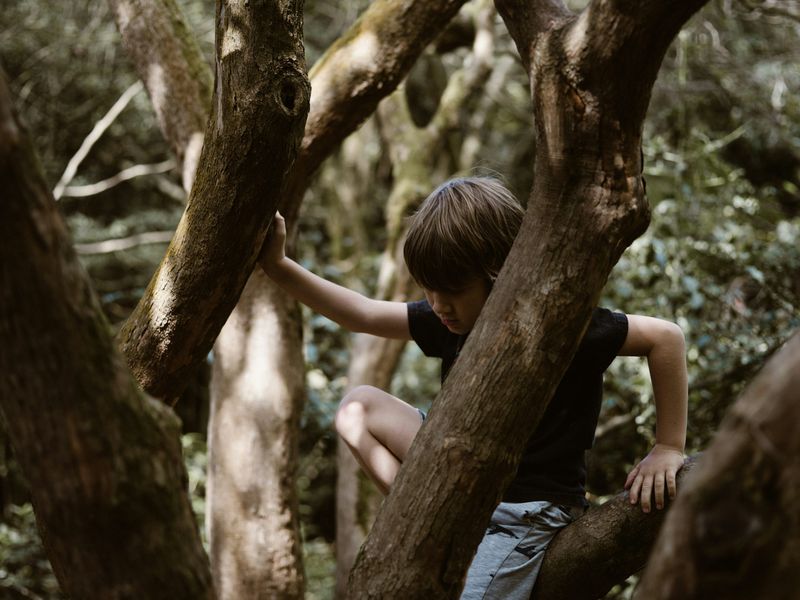
Trees weren’t just plants but kingdoms waiting to be conquered. Each branch presented a new challenge, and reaching the top felt like summiting Everest. You discovered which trees had the best climbing routes and secret spots perfect for reading or thinking.
Nature became your playground and teacher combined. You learned which bark was rough, which branches bent too much, and how to navigate heights safely. These adventures built confidence and physical strength.
Looking down from your perch gave you a different perspective on the familiar world below.
7. Collecting Things From Nature
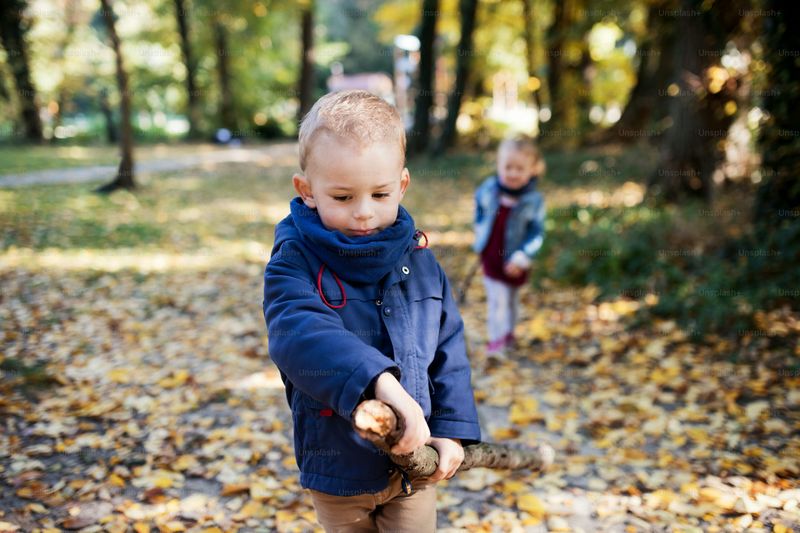
Pockets always held treasures from outdoor adventures. Smooth rocks, interesting leaves, feathers, and oddly shaped sticks all deserved a place in your collection. Each item told a story of where you found it and why it seemed special.
Organizing and categorizing your finds taught observation skills and scientific thinking. You noticed patterns, colors, and textures that adults walked past without seeing. Trading duplicates with friends created a whole economy of natural goods.
These collections connected you deeply to the environment and sparked curiosity about the natural world.
8. Playing Made-Up Games
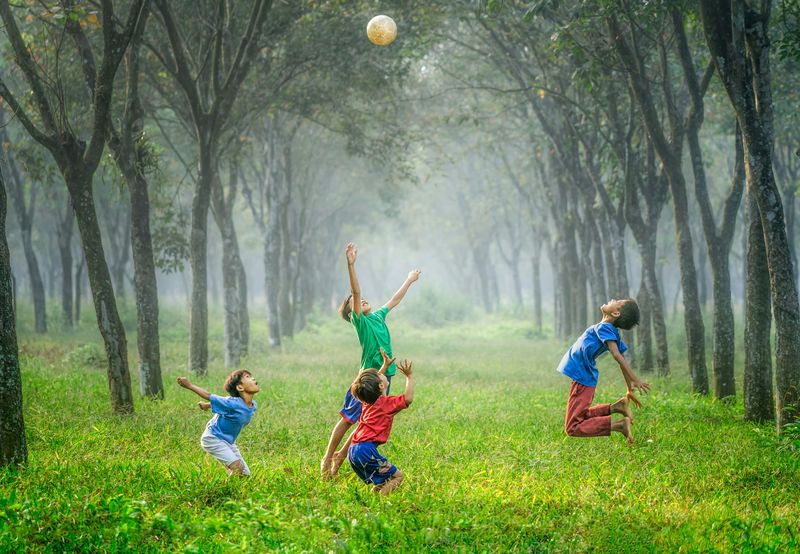
Creativity flourished when boredom struck and no toys were available. You invented games with complex rules that made perfect sense only to those playing. Sticks became swords, bases were determined by trees, and objectives changed mid-game without complaint.
These spontaneous activities taught negotiation, flexibility, and creative thinking. Everyone contributed ideas, and democracy determined which rules stuck. Arguments happened but were resolved quickly because playing was more important than being right.
No instruction manual could match the joy of games born from pure imagination.
9. Summer Days at the Pool or Beach

Hot summer days meant hours spent in cool water. Whether at the community pool or a nearby beach, these outings felt like mini-vacations. You perfected your cannonball, held breath-holding contests, and played endless games of Marco Polo.
Skin pruned from staying in too long, and chlorine or salt left hair stiff and tangled. Snack breaks on rough towels refueled you for more aquatic adventures. Friendships formed easily when everyone was having the same kind of fun.
Those water-logged days created some of summer’s best memories.
10. Reading Books With a Flashlight Under Covers

Bedtime was a suggestion you regularly ignored when a good book demanded finishing. Hiding under covers with a flashlight created a secret world where stories came alive. The slight rebellion of staying up late made the experience even more thrilling.
You discovered that reading could transport you anywhere, from magical kingdoms to outer space. Characters became companions, and their problems felt as real as your own. This habit built vocabulary, imagination, and a lifelong love of stories.
Morning grogginess was worth it for those extra chapters stolen from sleep.
11. Having a Best Friend Who Lived Nearby
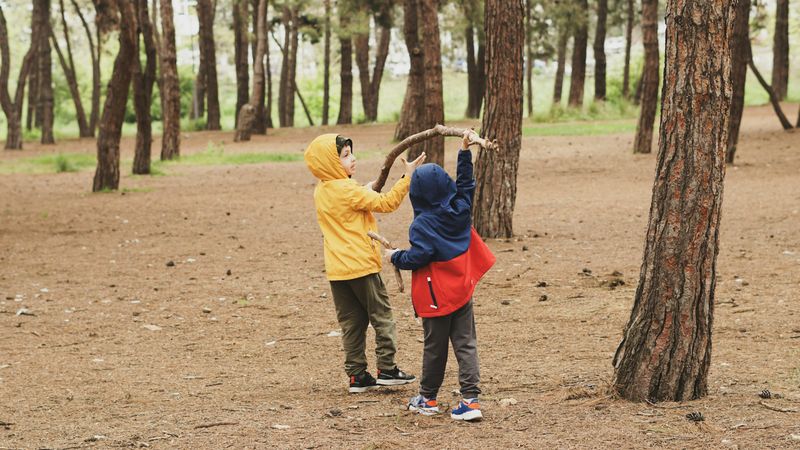
Having your best friend just a bike ride or short walk away was priceless. You saw each other almost daily, making plans spontaneous and easy. Inside jokes developed, secrets were shared, and you knew each other’s families like your own.
This friendship taught loyalty, compromise, and how to navigate conflicts without losing connection. You learned that real friends accept you completely, weird quirks included. Adventures were better shared, and boring days became fun with the right companion.
Distance wasn’t an obstacle when friendship lived just down the street.
12. Going to the Library Regularly

Library trips felt like treasure hunts where you could take the loot home free. Rows of books held infinite possibilities, and choosing which ones to borrow required careful consideration. The checkout limit always felt too restrictive for your reading appetite.
Librarians became guides who recommended perfect books based on your interests. Summer reading programs turned reading into an exciting challenge with prizes. That distinct library smell and the hushed atmosphere created a special, almost sacred space.
Each visit opened doors to new worlds waiting between covers.
13. Catching Fireflies in Jars
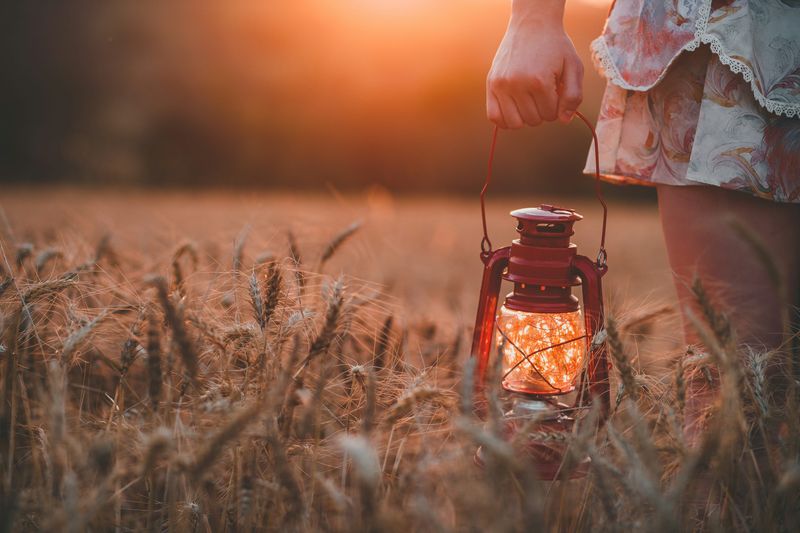
Summer evenings brought magical glowing insects that turned your yard into an enchanted forest. Armed with jars punctured with air holes, you chased those flickering lights with determination. Each captured firefly added to your temporary lantern’s glow.
Watching them blink inside the jar felt like holding captured starlight. You learned gentle handling because squishing them ended the magic permanently. Most kids released them before bed, watching the lights scatter back into darkness.
This simple activity connected you to nature’s wonders in an unforgettable way.
14. Celebrating Birthdays With Friends

Your birthday meant being the center of attention for one special day. Friends gathered at your house, bringing wrapped presents and excited energy. Games like musical chairs, pin the tail on the donkey, and scavenger hunts kept everyone entertained.
Homemade or bakery cakes featured your favorite flavors and characters you loved. Blowing out candles while everyone sang created a moment that felt magical every year. Party favors sent guests home with small reminders of the fun.
These celebrations made you feel valued and loved by your community of friends.
15. Making Things With Your Hands
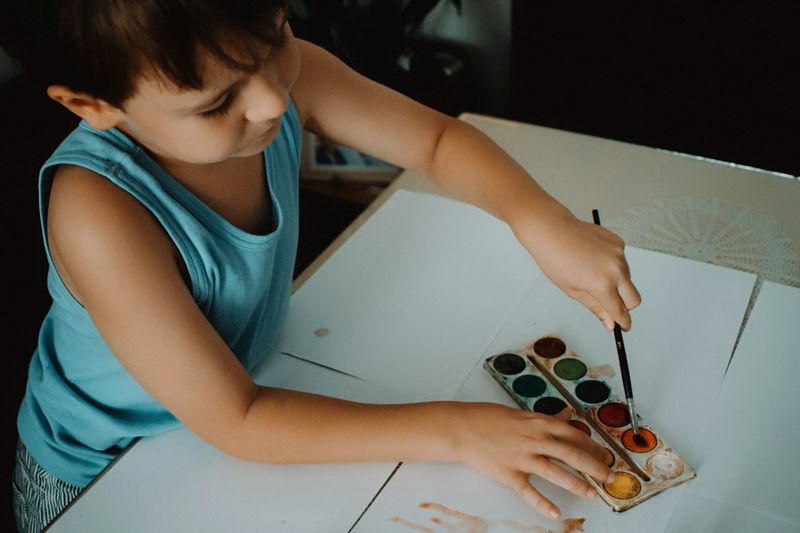
Rainy days called for arts and crafts that covered tables with creative chaos. Construction paper, glue, scissors, and markers transformed into whatever your imagination demanded. Projects ranged from greeting cards for family to elaborate sculptures that defied explanation.
Mistakes became happy accidents, and perfectionism hadn’t yet stolen the joy of creating. You learned that making something with your own hands brought satisfaction no store-bought item could match. Parents displayed your artwork proudly, validating your creative efforts.
These activities developed fine motor skills, patience, and artistic confidence.
16. Playing Board Games on Rainy Days
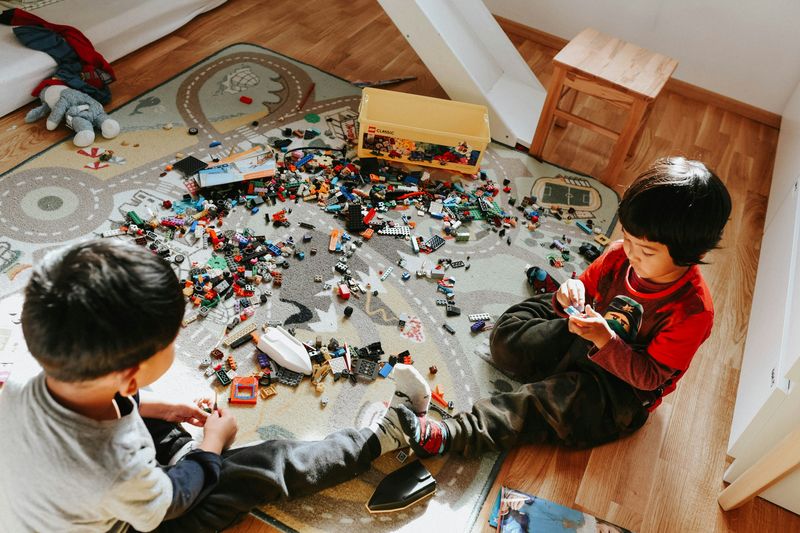
When weather trapped you inside, board games saved the day from boredom. Monopoly marathons lasted hours, with negotiations over property trades feeling incredibly important. Games taught strategy, counting, reading, and how to lose gracefully (though that last part took practice).
Siblings and friends became temporary rivals, and house rules modified official instructions. The tactile experience of moving pieces, shuffling cards, and rolling dice engaged you completely. Victory felt earned, and defeats motivated revenge matches.
These analog entertainments built social skills and patience between turns.
17. Experiencing Seasons Fully
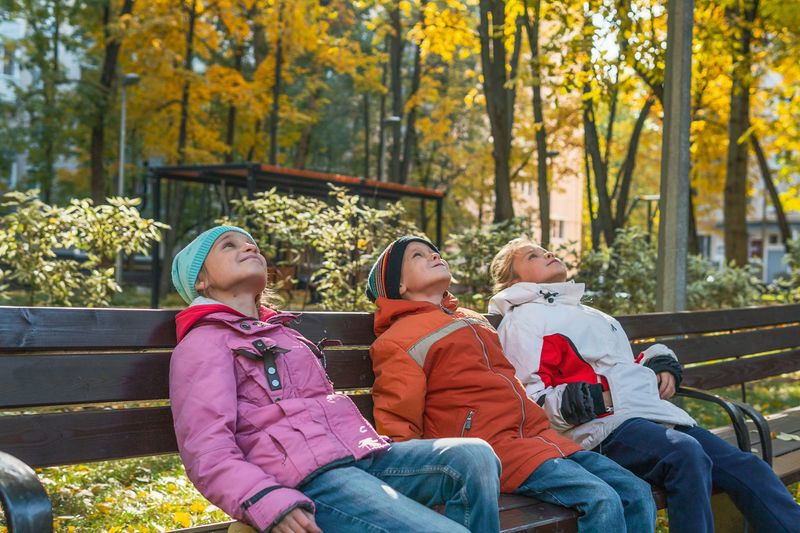
Each season brought distinct activities that marked the year’s passage. Fall meant jumping in leaf piles and Halloween preparations. Winter brought snowmen, sledding, and hot chocolate afterward. Spring invited puddle jumping and watching nature wake up, while summer promised endless outdoor adventures.
You noticed changes in weather, plants, and available activities with excitement. Seasonal traditions created anticipation and structure throughout the year. Nature’s cycle taught you that change is constant and each phase offers unique joys.
This connection to seasons grounded you in the natural world’s rhythms.
18. Getting Excited About School Events
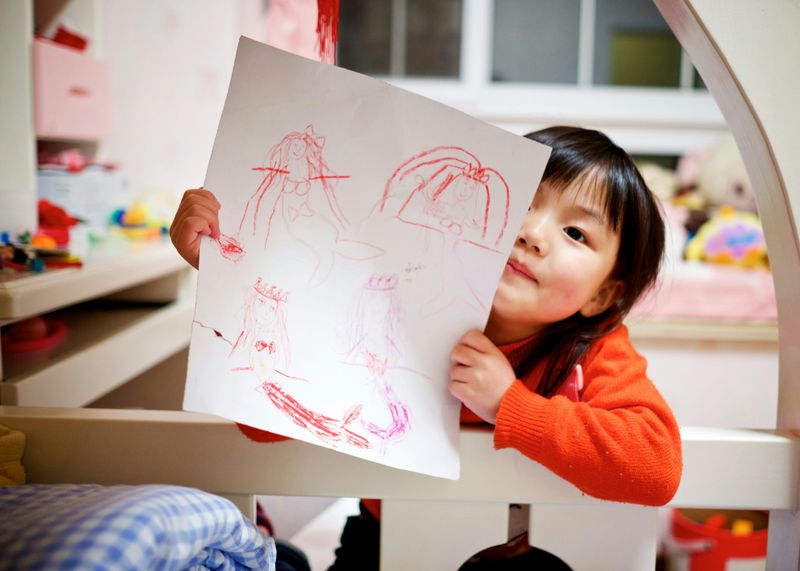
Field days, book fairs, and school performances broke up the routine with special excitement. You counted down days until these events like mini-holidays. Preparation involved practicing for performances or saving money for book fair treasures.
These occasions made school feel like a community rather than just a building. Seeing teachers in different contexts, like cheering at field day, humanized them. Memories of these events often outlasted academic lessons learned that year.
They taught you that learning environments could include fun and celebration too.
19. Having Pen Pals or Writing Letters

Before instant messaging, written letters carried your words to distant friends or relatives. Choosing stationery, carefully writing your message, and waiting for responses taught patience. Each letter received felt like a small gift delivered by the mail carrier.
You learned proper letter formatting, thoughtful communication, and how to maintain relationships across distances. Handwriting revealed personality in ways typed text couldn’t. Saving letters created physical records of friendships and family connections.
This slower communication made each exchange more meaningful and anticipated.
20. Spending Time With Grandparents
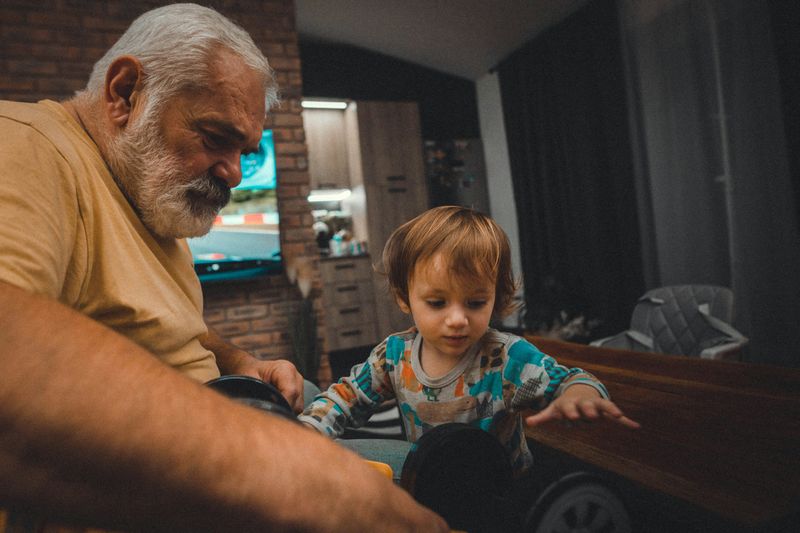
Visits to grandparents’ houses meant entering a world with different rules and endless treats. They spoiled you in ways parents wouldn’t, offering cookies before dinner and staying up late. Stories from their youth opened windows into history you couldn’t learn from books.
Special traditions existed only at their house, from particular games to favorite meals. Their patience seemed infinite, and their pride in you felt unconditional. Time moved differently there, slower and more focused on connection.
These relationships provided roots, wisdom, and unconditional love across generations.
21. Creating Lemonade Stands or Small Ventures

Entrepreneurial spirit emerged when you set up a lemonade stand on hot days. Hand-painted signs advertised your product, and you learned about pricing, customer service, and marketing. Neighbors supported your venture, often overpaying for watered-down drinks.
Counting your earnings at day’s end taught basic math and the value of work. You discovered that running a business, even a tiny one, required planning and effort. Success felt earned, and failures provided lessons for next time.
These experiences planted seeds of business understanding and self-reliance.
22. Watching Movies as Family Events

Movie nights transformed living rooms into theaters with dimmed lights and special snacks. Choosing which movie to watch involved democratic voting or taking turns picking. Everyone gathered on the couch, sharing blankets and commentary throughout.
These weren’t just about the film but about being together without other distractions. Quoting favorite lines became inside jokes used for weeks afterward. Rewatching beloved movies created comfort through familiarity.
This simple ritual built family bonds and created shared cultural references that lasted years.
23. Playing in Sprinklers and Water Hoses
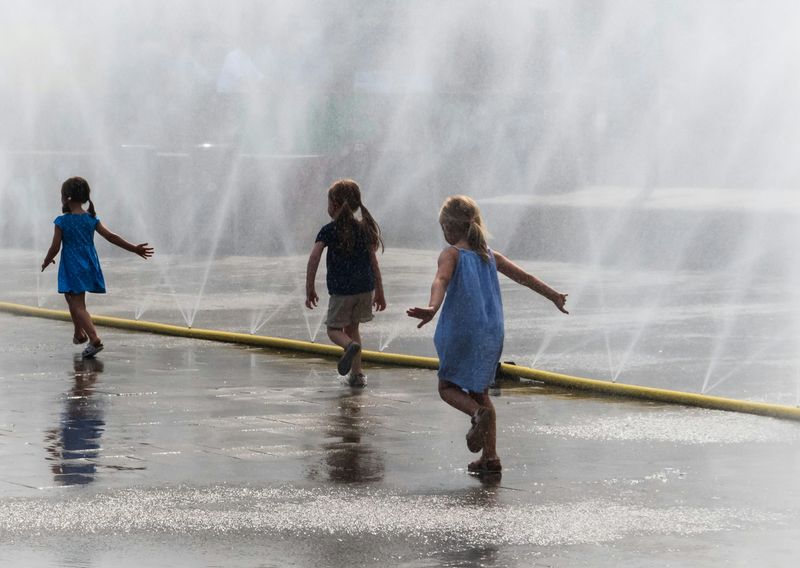
When pools weren’t available, sprinklers and hoses provided water fun right at home. Running through cold spray on scorching days felt refreshing and hilarious. Someone always controlled the hose, creating games of chase and strategy.
Parents didn’t worry about elaborate setups or safety concerns beyond basic supervision. Your yard became a water park requiring only a faucet and imagination. Grass felt slippery under bare feet, and you didn’t care about getting completely soaked.
This simple pleasure proved that fun didn’t require expensive entertainment or special equipment.
24. Feeling Safe and Secure at Home

Knowing home was a safe haven where you belonged completely shaped your confidence. Consistent routines around bedtime, meals, and daily life provided predictability that felt comforting. You could express emotions, make mistakes, and still feel unconditionally accepted.
Parents or caregivers created boundaries that felt protective rather than restrictive. Physical spaces like your bedroom became personal sanctuaries decorated with your interests. This security allowed you to explore the world knowing you had a base to return to.
Emotional safety at home built the foundation for healthy relationships throughout life.
25. Having Unstructured Free Time

Hours existed with absolutely nothing scheduled and nowhere to be. Boredom struck regularly, forcing you to invent your own entertainment. This empty time sparked creativity, daydreaming, and self-directed exploration that structured activities couldn’t provide.
You learned to be comfortable with yourself and your own thoughts. Without constant stimulation, your mind wandered to interesting places and generated unique ideas. Play emerged organically rather than being organized by adults.
This freedom taught self-reliance, imagination, and that being busy isn’t always better than simply being.

Comments
Loading…